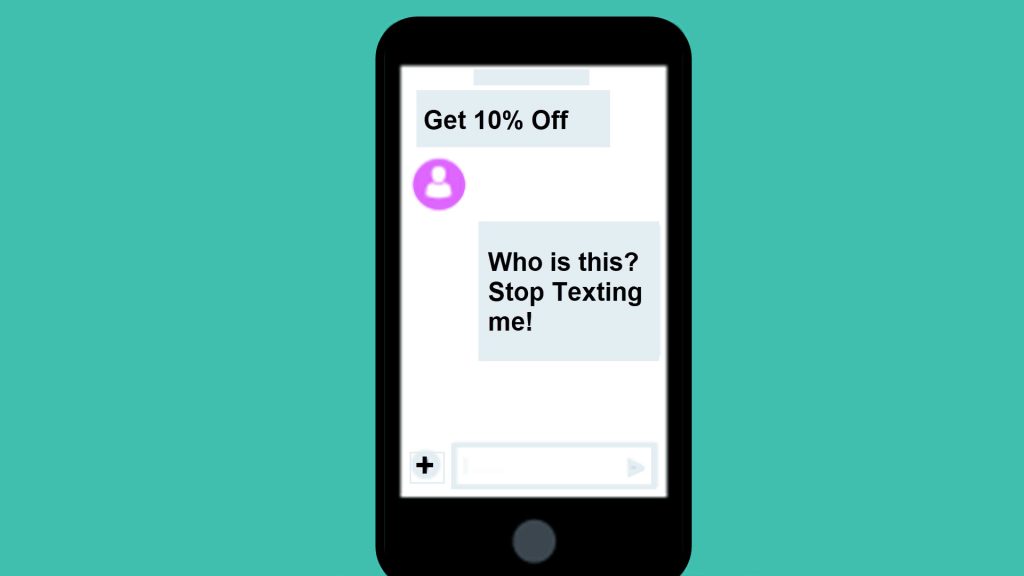TCPA Compliance & SMS Marketing: Can Loyalty Programs Help?

In today’s digital age, SMS marketing has become a powerful tool for businesses to engage with their customers and drive sales. However, with this power comes responsibility, particularly in adhering to regulations such as the Telephone Consumer Protection Act (TCPA) to ensure compliance, avoid fines, and protect consumer privacy. For businesses leveraging SMS as part of their marketing efforts, understanding and adhering to TCPA regulations is essential, yet often confusing and difficult. Let’s delve into how loyalty programs can help businesses adhere to TCPA SMS regulations effectively, navigating a complicated web of compliance restrictions.
Understanding TCPA Compliance
TCPA was enacted to regulate, amongst other telemarketing practices, unsolicited marketing text messages (aka SMS Marketing). Under TCPA, businesses are required to obtain, and be able to provide proof of, express written consent from consumers before sending them any marketing text messages. Additionally, businesses must provide clear opt-out mechanisms for consumers, who wish to stop receiving SMS marketing messages. But it gets worse… TCPA regulations also dictate restrictions on the time of day permitted for delivering marketing messages, based on the local time of each recipient; that’s right, it’s not enough to limit sending SMS messages during permitted hours in your time zone, but rather, relative to each individual recipients time zone!
Other regulations include:
Compliance with Age-Restricted Content
Businesses must ensure compliance with age-restricted content when sending SMS marketing messages. Certain promotions or offers included in SMS marketing campaigns may be restricted to individuals above a certain age, like 18 or 21.
S.H.A.F.T Content
It’s a serious violation to send SMS marketing messages containing S.H.A.F.T content (Sexual, Harassment, Alcohol, Firearms, Tobacco). Industries, such as Cannabis, Vape, Smoke Shops, Adult Entertainment, Gambling and Liquor often find it difficult, if not impossible, to operate an effective SMS marketing campaign due to the nature of their products and services.
The Role of Loyalty Programs in TCPA Compliance
-
Obtaining Express Consent
Loyalty programs provide businesses with an easy platform to obtain and keep record of express consent from customers receiving SMS marketing messages. When customers sign up, they can be presented with clear opt-in options for SMS marketing, ensuring compliance with TCPA regulations.
-
Opt-Out Mechanisms
Loyalty programs facilitate the implementation of opt-out mechanisms required by TCPA. Businesses can integrate opt-out functionality directly into their loyalty program. This allows customers to easily unsubscribe from SMS marketing messages, with immediate effect, if they choose to do so. Moreover, unsubscribe preferences are not tracked solely against the specific MO (mobile-originating number) or sms provider, but rather they are tracked and managed against the customer’s profile in the loyalty database; that means, even if a business changes SMS providers and/or mobile originating numbers, the unsubscribe status of their SMS recipients transfers to the new provider and/or originating number!
-
Time-of-Day Restrictions
Loyalty programs may enforce time-of-day delivery restrictions by preventing the delivery of SMS marketing messages outside of the permissible hours, local to each destination number (MT/mobile terminated number). By configuring the loyalty program to adhere to TCPA regulations regarding message delivery times, businesses can avoid potential violations and ensure compliance, with the added benefit of not annoying their customers with early morning and late night messages. It’s important to note, however, not all loyalty programs will offer this capability.
-
Age Gating
Loyalty programs enable businesses to collect birth date information from customers during the signup process or through profile management features. By implementing age gating mechanisms, businesses can ensure that age-restricted content is only delivered to eligible individuals who have provided proof of age through their loyalty program profiles. It’s important to note, while most loyalty programs track birth months, not all will track full birthdates and not all will leverage this information when it comes to delivering messages.
-
S.H.A.F.T Content Filtering
Loyalty programs can integrate sophisticated content filtering algorithms and keyword detection technology to pre-screen SMS marketing messages for S.H.A.F.T content and trigger words that may violate TCPA regulations. By proactively identifying and flagging sensitive content, at the time of authoring vs simply dropping messages at time of delivery, businesses may improve their SMS delivery and read rates, while mitigating compliance risks and maintaining consumer trust. It’s important to note, not all SMS delivery platforms will provide pre-screening of authored content, before delivery is performed and violations with SMS Carriers are triggered.
-
Private Messaging Mechanism
In instances where non-compliant content is detected in SMS marketing messages, some loyalty programs will offer a private messaging mechanism to notify customers they have a new message and redirect the customer to view the message in a secure and compliant non-sms messaging portal. This private messaging mechanism allows businesses to maintain TCPA compliance by not delivering potentially sensitive or prohibited content directly via SMS, while still ensuring that customers receive text-based alerts that a message exists and a one-click link to read it. It’s important to note, not all loyalty programs and SMS delivery platforms will offer this alternative messaging mechanism.
Best Practices for TCPA SMS Compliance
-
Transparent Opt-In Processes
Clearly communicate to customers that opting into SMS communications is optional and obtain your customer’s express consent through transparent opt-in processes, and track that consent in a manner whereby proof can be presented, if questioned. Regulations require retaining proof of consent for 4 years. It’s important to choose a provider who will retain your records for that period of time.
-
Robust Opt-Out Mechanisms
Provide customers with easy-to-use opt-out mechanisms, ideally in every SMS message delivered to them. A common method is to include a “Reply STOP to quit” footer in all outgoing marketing text messages, to comply with TCPA requirements.
-
Time-of-Day Restrictions
Choose a loyalty program that supports enforcement of TCPA time-of-day restrictions on SMS message delivery to ensure compliance with regulatory requirements of each state. You might not always be aware you have recipients residing in states like Florida, Michigan, Oklahoma, Washington and Maryland, where time restraints are varied and more restrictive than the standard 8am – 9pm window specified by TCPA!
-
Age Gating
Use loyalty programs to collect full birth date information (instead of only birth month) and implement age validations before sending restricted content to minors. This ensures age-restricted content is only delivered to age-eligible individuals. It’s important to choose a loyalty program (or SMS provider) that supports recipient age checks before they are targeted as viable recipients.
-
Content Filtering
Integrate advanced content filtering mechanisms. Lean on a loyalty program platforms to screen SMS marketing messages for S.H.A.F.T content. Avoid trigger words that may violate regulatory guidelines or industry standards.
-
Private Messaging Mechanism
When content is questionable, in terms of TCPA compliance, choose a private messaging mechanism to deliver your message and notify customers via SMS that they have a new message.
-
Regular Compliance Audits
Conduct regular audits of your loyalty program and messaging practices. This includes time-of-day restrictions, age gating, content filtering, and private messaging mechanisms.
-
Educate Staff
Train staff members responsible for managing the loyalty program, especially those involved in SMS marketing. Incorporate into SMS marketing initiatives, compliance with TCPA regulations, as defined by each state. This includes time-of-day restrictions, age gating, content filtering, private texting mechanisms, and best practices for collecting and managing customer data.
-
Stay Informed
Stay updated on changes to TCPA regulations and industry best practices related to SMS marketing, and be aware of state specific variants that might apply to your specific state or states where your recipients reside.
Conclusion
Loyalty programs are a crucial tool in helping businesses adhere to TCPA regulations for SMS. By leveraging a loyalty program, businesses can easily obtain express consent, implement opt-out mechanisms, enforce time-of-day restrictions, collect birth date information for age-gating, avoid S.H.A.F.T content and associated trigger words, and offer a private messaging mechanism for delivering non-compliant content. By following these best practices and staying informed about regulatory updates, businesses can navigate TCPA regulations with confidence and leverage SMS marketing as a powerful tool!

